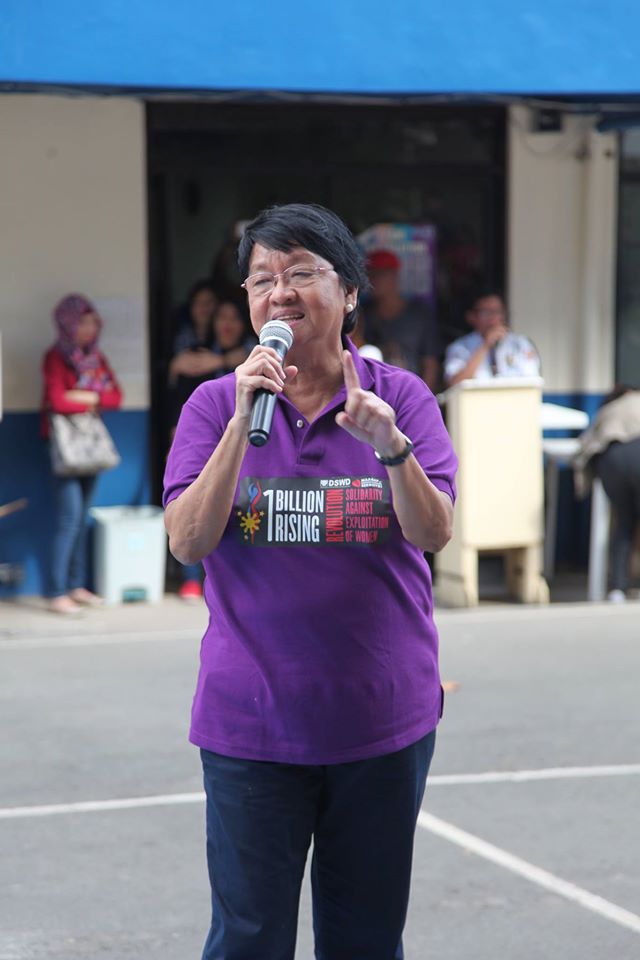Breaking
DSWD wants PHP 1-B fund for meds of drug dependents be used for YakapBayan

DSWD Secretary Judy M. Taguiwalo. (Photo: Department of Social Welfare and Development/ Facebook)
MANILA — Department of Social Welfare and Development (DSWD) said that it will make a request to President Rodrigo R. Duterte that the PHP 1-billion budget set aside for the medical concerns of drug dependents will instead be used to a much-needed purpose–for rehabilitation and reintegration.
“Sa totoo lang nagbigay din sa amin (DSWD) si President Duterte ng Isang Bilyong Piso para tulungan ang drug dependents para sa kanilang pangangailangang pang-medisina…Pero natuklasan namin na maliit na bahagi lamang ang nangangailangan ng medisina..At mas nasa position ang Department of Health (DOH) to be able to do that. Mag-re-request na lang kami kay President na yung PHP 1 Billion na yun ay gamitin na lang para itulong sa rehabilitasyon at reintegrasyon,” said DSWD Secretary Judy M. Taguiwalo in her speech during the Rehabinasyon Public Forum held at the Event Center of Quezon Memorial Circle in Quezon City on Wednesday.
This PHP 1 billion is different from the 1 billion Lingap sa Masa Medicine Program of the President Duterte, which was sourced from his Socio-Civic Funds.
Taguiwalo said that based on their assessments, the scope of the drug problem encompasses the youth which should be looked upon and assisted primarily.
“If you look at the data the bulk of the drug dependents are actually from the 19 to 50 years old, the most productive years of our people,” the Welfare Chief added.
She said that right now, they had conceptualized the YakapBayan (Embrace the People) program for the rehabilitation and reintegration phase for drug dependents that the government wants to mainstream back into the society as productive citizens.
Under the YakapBayan program, she said that they wanted to transform former drug dependents into “community leaders” to erase their images as “ills of society”.
“Our goal is turn them as advocates and “leaders” that are capable of organizing training as responders during disasters wherein they can be seen in the community actively participating in worthwhile activities and contributing also to the safety of other people,” she said.
In that way, she said that the former drug dependents can actually feel sense of belonging and realization that they have a purpose and should not be ruined by illegal drugs as they get pre-occupied with the tasks and responsibilities that they will fulfill.
“Change is possible change is here. The war against drugs should not just be a war to eliminate illegal drugs but also to assists drug dependents, changed and turned a new leaf (of their life),” the Welfare Official added.
Incidentally, the conceptualization of the said program was also inspired by the fact that DSWD is also the vice-chair for the disaster response clusters.
Aside from that, the deep concern for giving the marginalized and vulnerable sectors, who turned into drug dependents, chance to reform stems from the fact also that these people were also used as victims by the bigger syndicates and still can be restore back if given the right helping hands through the joint efforts of the government agencies, local government units and other religious sectors.





















